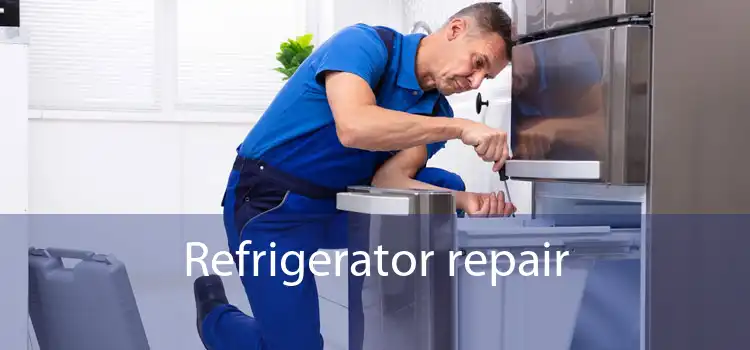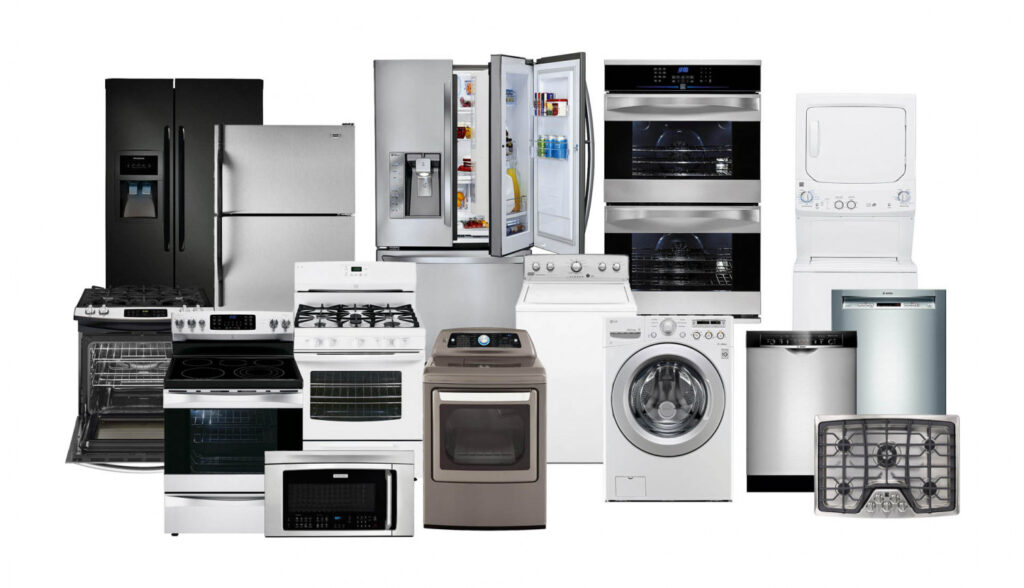Refrigerators are essential in every household, preserving food and keeping it fresh. But what happens when your refrigerator stops working? Knowing common problems and basic troubleshooting tips can save you time and money. Here’s a guide to the most frequent refrigerator issues and when to call a professional.
1. Refrigerator Not Cooling Properly
When your refrigerator isn’t cooling as it should, it could lead to spoiled food and inconvenience. Here are the common causes and solutions:
- Possible Causes:
- Dirty condenser coils
- Faulty thermostat settings
- Blocked air vents
- Malfunctioning evaporator fan
- Troubleshooting Tips:
- Clean the Condenser Coils: Dust and dirt on condenser coils can prevent the refrigerator from cooling efficiently.
- Unplug the refrigerator.
- Locate the condenser coils (usually at the back or bottom).
- Use a vacuum or coil brush to remove dust and debris.
- Check Thermostat Settings: Ensure the thermostat is set to the correct temperature (around 37°F for the fridge and 0°F for the freezer).
- Clear Air Vents: Make sure nothing is blocking the air vents inside the fridge and freezer. This allows for proper air circulation.
- Inspect the Evaporator Fan: If the fan isn’t working, it won’t circulate cold air. You might hear unusual noises if it’s faulty.
- Clean the Condenser Coils: Dust and dirt on condenser coils can prevent the refrigerator from cooling efficiently.
- When to Call a Professional:
- If the compressor or evaporator fan is malfunctioning.
- When electrical issues or coolant leaks are suspected.
2. Water Leaking from Refrigerator
Finding water puddles under or inside the refrigerator is a common issue. Here’s why it happens and how to fix it:
- Possible Causes:
- Clogged defrost drain
- Faulty water inlet valve
- Cracked drain pan
- Improperly aligned doors
- Troubleshooting Tips:
- Clear the Defrost Drain:
- Unplug the refrigerator and locate the defrost drain (usually at the back).
- Use warm water to clear any ice or debris blocking the drain.
- A pipe cleaner or a small brush can help remove stubborn clogs.
- Inspect the Water Inlet Valve: Ensure the valve connected to the ice maker or water dispenser isn’t leaking. Replace it if damaged.
- Check the Drain Pan: If the drain pan is cracked or overflowing, replace it.
- Realign Refrigerator Doors: Improperly sealed doors cause condensation and water leakage. Adjust the doors for a tighter seal.
- Clear the Defrost Drain:
- When to Call a Professional:
- If the issue persists after cleaning the drain.
- For complex water inlet valve repairs or replacement.
3. Ice Maker Not Working
A malfunctioning ice maker can be inconvenient, especially during summer. Here’s how to troubleshoot the problem:
- Possible Causes:
- Clogged water filter
- Faulty ice maker switch
- Frozen water line
- Defective water inlet valve
- Troubleshooting Tips:
- Replace the Water Filter: A clogged filter restricts water flow to the ice maker.
- Check the user manual for the filter location.
- Replace the filter every six months for optimal performance.
- Check the Ice Maker Switch: Ensure the switch is in the ‘On’ position. Sometimes, the arm controlling the switch gets stuck.
- Defrost the Water Line:
- Unplug the refrigerator.
- Use a hairdryer to gently thaw the frozen water line.
- Make sure the water supply line is not kinked.
- Inspect the Water Inlet Valve: A defective valve won’t supply water to the ice maker. If faulty, it needs replacement.
- Replace the Water Filter: A clogged filter restricts water flow to the ice maker.
- When to Call a Professional:
- If the ice maker motor or control board is malfunctioning.
- For complex water line or valve issues.
4. Strange Noises Coming from the Refrigerator
Unusual sounds coming from the refrigerator can be alarming. Here’s what they might mean:
- Possible Causes:
- Faulty evaporator fan motor
- Dirty condenser fan
- Ice buildup around the fan
- Vibrating compressor
- Troubleshooting Tips:
- Clean the Condenser Fan: Dust accumulation can make the fan noisy.
- Unplug the refrigerator and locate the fan (usually at the back or bottom).
- Clean it with a brush or vacuum.
- Defrost Ice Buildup: Excessive ice around the evaporator fan can cause grinding noises. Defrost the freezer to eliminate the noise.
- Check for Loose Parts: Tighten any loose screws or panels to reduce vibrations.
- Clean the Condenser Fan: Dust accumulation can make the fan noisy.
- When to Call a Professional:
- If the compressor is making loud noises.
- For motor or fan replacement.
5. General Maintenance TipsRegular maintenance can extend the life of your refrigerator and reduce repair costs:
- Clean the condenser coils every 6-12 months.
- Replace the water filter every six months.
- Check and adjust door seals for a proper fit.
- Keep the refrigerator well-organized to ensure good air circulation.
6. When to Call a Professional
While DIY fixes can solve many issues, some problems require professional expertise:
- Electrical issues, including power failures or wiring problems.
- Compressor or motor malfunctions.
- Refrigerant leaks.
- Complex mechanical failures.
Pro Tip: Always unplug the refrigerator before attempting any repairs to avoid electrical shocks.
Conclusion
A well-functioning refrigerator is essential for food safety and convenience. Regular maintenance and timely repairs can save you from expensive replacements. For complex issues, don’t hesitate to call a professional technician.
Need Help?
If you’re experiencing refrigerator problems that you can’t fix on your own, contact a certified appliance repair service to get your fridge running smoothly again.




